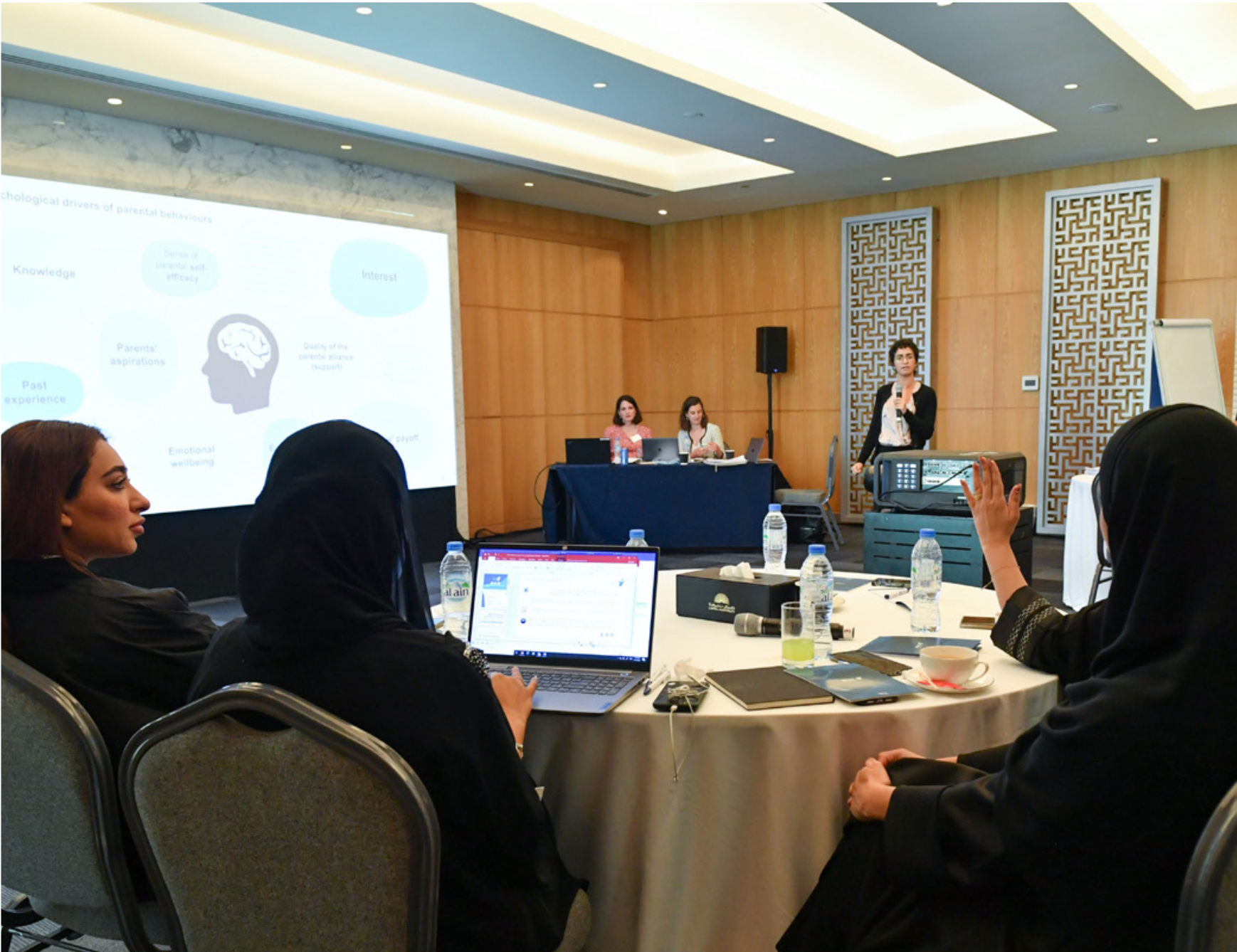
SBC in support of Early Childhood Development (ECD)
Client: Abu Dhabi Early Childhood Authority (ECA)
Pillar: Early Childhood Development/Education
Thematic Areas: SBC strategy development
Services Provided: Research, Strategy
Context
The ECA adopted an ambitious ECD Strategy 2035 aimed at realizing its vision that “every young child is healthy, confident, curious, able to learn and develop strong values in a safe, family-friendly Abu Dhabi.” The ECA recognises that effective implementation of this strategy requires a robust and multi-faceted communications approach that can build widespread knowledge, a shared vision and values for ECD, enabling continuous support and engagement of parents, caregivers, practitioners and key decision makers.
MAGENTA supported the ECA to:
Conduct research and understand parental behavioural drivers behind ECD practices;
Engage with ECA partners to include them in strategy design;
Use findings to develop a multi-faceted, multi-year ECD communications and engagement strategy.
What we did
MAGENTA designed a comprehensive SBC strategy based on two pillars: one relying on a transmedia storytelling approach with edutainment at its core and the second focusing on empowering ECA and their partners in using SBC to reinforce ECD programming in Abu Dhabi. The strategy was informed by :
Robust formative research (qualitative and quantitative) that provided insight into parental ECD knowledge, attitudes and practices and the behavioural drivers behind them;
An in-depth media landscape analysis to understand media consumption of Abu Dhabi’s diverse population. MAGENTA also engaged ECA’s government partners during a workshop and follow-up online sessions.
Research
Data was collected across 6 population groups to account for the diversity of Abu Dhabi. Findings were disaggregated by gender, population groups, children’s age range and the three regions of the Emirate.
Quantitative data was collected through a mix of online surveys and face-to-face interviews and qualitative FGDs and interviews were conducted online as per health and safety guidelines during the COVID 19 pandemic.
MAGENTA designed the research methodology and tools and con- ducted the entire data coding, analysis and report writing. Data it- self was collected by IPSOS, a regular MAGENTA partner in multiple countries.
Outcomes: SBC insights and strategy focus
MAGENTA and the ECA prioritized parental self-care and play during the prenatal to 3 years-old phase. Research and partner engagement showed that:
A majority of parents experience high level of stress and isolation and low self-efficacy, often combined with parental alliance issues
Parents do not always practice age appropriate play and stimulation activities with a general lack awareness on the importance of early years in Abu Dhabi.
Early years are the most challenging adaptation period for new parents with increased levels of stress and exhaustion and need for support.
The prenatal phase represents a tremendous opportunity to engage fathers in all aspects of child rearing on the long run.
Strategy focus on Emirati and Arab expat populations who need the most support.
Strategy design
5-year pilot intervention implemented by ECA targeting parents and ECD professionals
Communications and Digital Engagement: Visual brand identity, flagship website, social media campaign, Audio content (radio/podcast), SMS messages, Mental health Chatbot.
Service design and delivery: Adapting, piloting and rolling out frontline workers’ training, prenatal programmes for fathers, mothers’ groups.
Community engagement: Identification and training of community ambassadors, pop-ups at malls, private sector partnership
Supporting ECA and their partners in their SBC journey
SBC in-depth capacity assessment.
SBC Toolkit provided.
SBC Capacity building through trainings and mentoring programme.
Advocacy efforts.
MAGENTA also developed all supporting documents including a detailed Year 1 implementation plan, a monitoring and eval- uation framework as well as a preliminary assessment of ECA’s partners’ appetite and capacity to take part in implementation.

